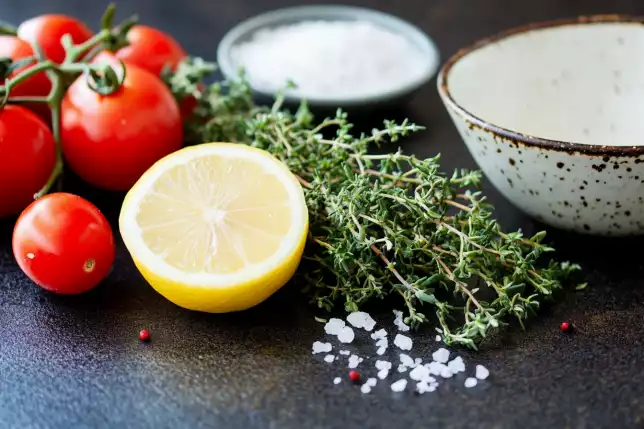Introduction
How to grow rosemary successfully can enhance your home with this versatile herb’s culinary, medicinal, and aromatic benefits. Whether you’re cooking with it, using it in skincare, or making crafts, rosemary adds flavor, fragrance, and wellness to your life.
1. How to Grow Rosemary
For more detailed information on rosemary cultivation, check out this comprehensive rosemary growing guide from Botanical Kitchen.
Ideal Growing Conditions
Rosemary thrives in full sunlight and well-drained soil. It prefers a slightly alkaline pH and moderate watering, allowing the soil to dry between waterings.
Growing Rosemary Indoors vs. Outdoors
Outdoors, rosemary flourishes in garden beds, while indoors, it grows well in containers near a sunny window. Ensure good air circulation to prevent mildew.
Propagating Rosemary
You can propagate rosemary through seeds, cuttings, or layering. Cuttings are the quickest and most reliable method for getting new plants.
Common Rosemary Care Tips
Prune regularly to encourage bushy growth and repot container plants every couple of years. Check for pests like spider mites and aphids and manage them with natural remedies.

2. How to Harvest and Preserve Rosemary
When and How to Harvest Rosemary
Harvest rosemary in the morning, once the dew has dried. Cut sprigs from mature plants and avoid harvesting more than a third at a time. For more reasons to grow this versatile herb, check out our guide on the 10 Reasons to Grow Rosemary.
How to Preserve Rosemary
Preserve rosemary by drying it in a well-ventilated area, freezing it, or storing fresh sprigs in the refrigerator. Dried rosemary lasts up to a year.
3. Culinary Uses of Rosemary
Cooking with Fresh vs. Dried Rosemary
Fresh rosemary has a stronger flavor and is ideal for garnishes or short cooking times. Dried rosemary is milder and better for slow-cooked dishes.
Rosemary in Savory Dishes
Add rosemary to marinades for meats, roasted vegetables, and soups. Its robust flavor pairs well with chicken, lamb, and potatoes.
Rosemary in Baking and Desserts
Experiment with rosemary in bread, cookies, and cakes to add a unique herbal note to sweet dishes.
Making Rosemary-Infused Oils and Butters
Create flavorful oils and butters by infusing rosemary. Simply steep fresh sprigs in olive oil or butter for a few days to capture the herb’s essence

4. Beyond Cooking: Non-Culinary Uses of Rosemary
Rosemary for Skincare and Haircare
Rosemary promotes hair growth, reduces dandruff, and can soothe skin. Make rosemary-infused shampoos or lotions to enjoy these benefits.
Medicinal Uses of Rosemary
Rosemary aids digestion, enhances memory, and supports the immune system. Its anti-inflammatory properties make it a popular herbal remedy.
Using Rosemary in Aromatherapy
Rosemary essential oil is used in aromatherapy for stress relief, focus, and relaxation. Its energizing scent helps boost concentration.
5. DIY Projects with Rosemary
Creating a Rosemary Herb Wreath
Rosemary makes a beautiful, fragrant wreath. Simply gather sprigs, tie them into a circle, and display them for a natural touch to your home décor.
Homemade Rosemary Candles and Soaps
Craft rosemary-scented candles and soaps by infusing wax and soap bases with rosemary essential oil or dried leaves.
6. Rosemary Varieties to Consider
Top Rosemary Varieties for Cooking
‘Tuscan Blue’ and ‘Arp’ are two popular culinary varieties, known for their flavor and hardy growth.
Rosemary Varieties for Ornamental Use
For ornamental purposes, consider ‘Prostratus’ (creeping rosemary), which looks stunning in hanging baskets or as ground cover.
7. Common Issues When Growing Rosemary
Preventing and Managing Pests
Aphids, spider mites, and powdery mildew are common pests for rosemary. Use organic sprays and keep air circulation good to minimize problems.
How to Deal with Root Rot
Root rot occurs from overwatering or poorly drained soil. To prevent this, ensure your rosemary plants have excellent drainage and avoid waterlogging.
Frequently Asked Questions (FAQs)
Q: How often should I water rosemary plants?
A: Water rosemary when the soil is dry to the touch. Be careful not to overwater, as rosemary prefers drier conditions.
Q: Can rosemary survive cold winters?
A: Rosemary is frost-sensitive, so bring it indoors or cover it during freezing temperatures if you live in a cold climate.
Q: How can I use rosemary for health benefits?
A: Rosemary is commonly used for digestion, memory enhancement, and stress relief. You can drink it as tea, inhale it in aromatherapy, or use it topically.
Q: What’s the best way to dry rosemary for long-term use?
A: Hang rosemary sprigs in a cool, dry, and dark space for about two weeks. Store the dried rosemary in an airtight container.
Conclusion
Rosemary is a versatile herb that adds flavor, fragrance, and health benefits to your home. Whether you’re cooking with it, using it in aromatherapy, or making crafts, rosemary is an essential herb for every garden. Start growing your own rosemary today to enjoy its many benefits year-round.


1 thought on “How to Grow Rosemary: Cultivation Tips and Creative Uses”